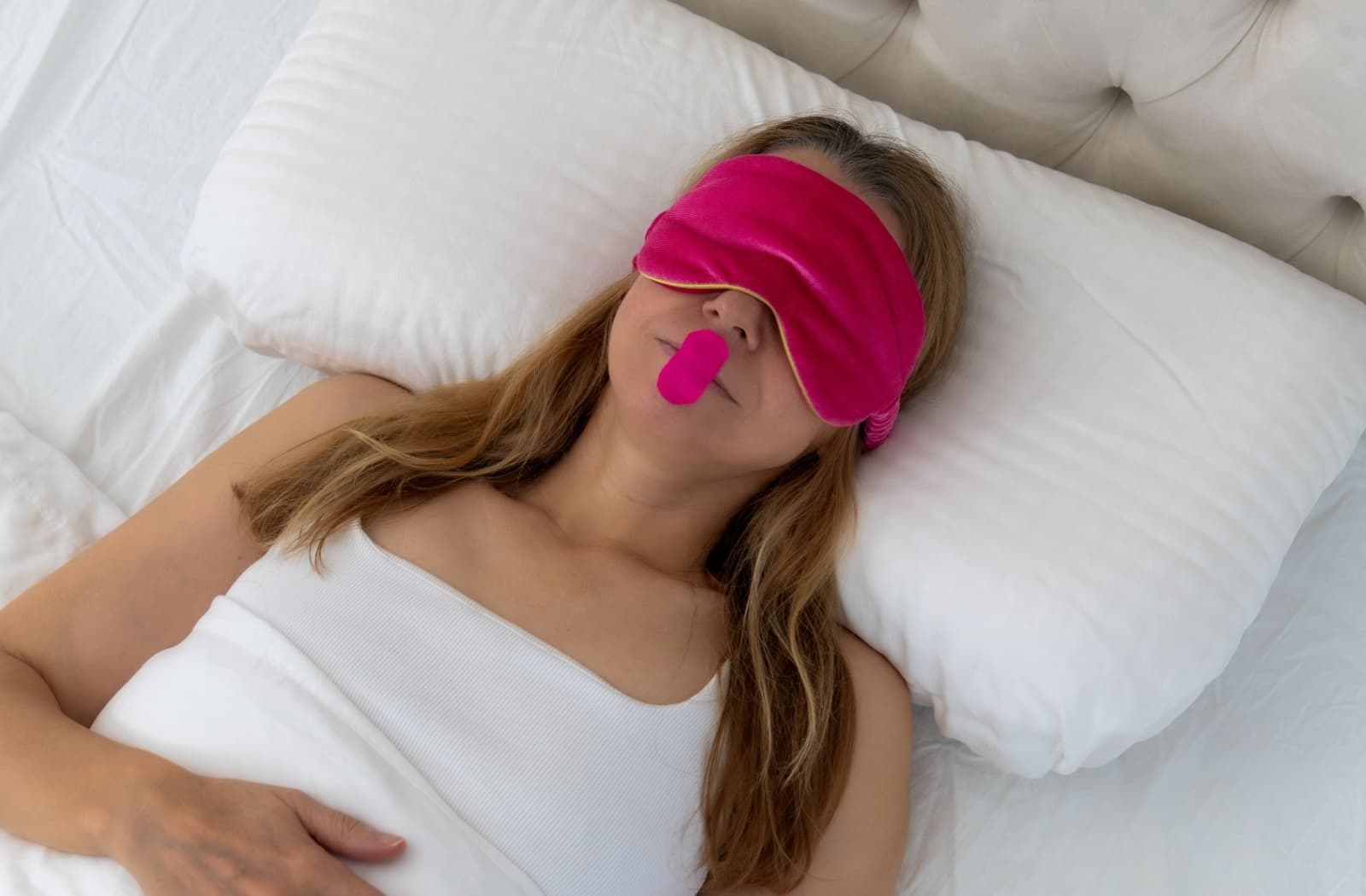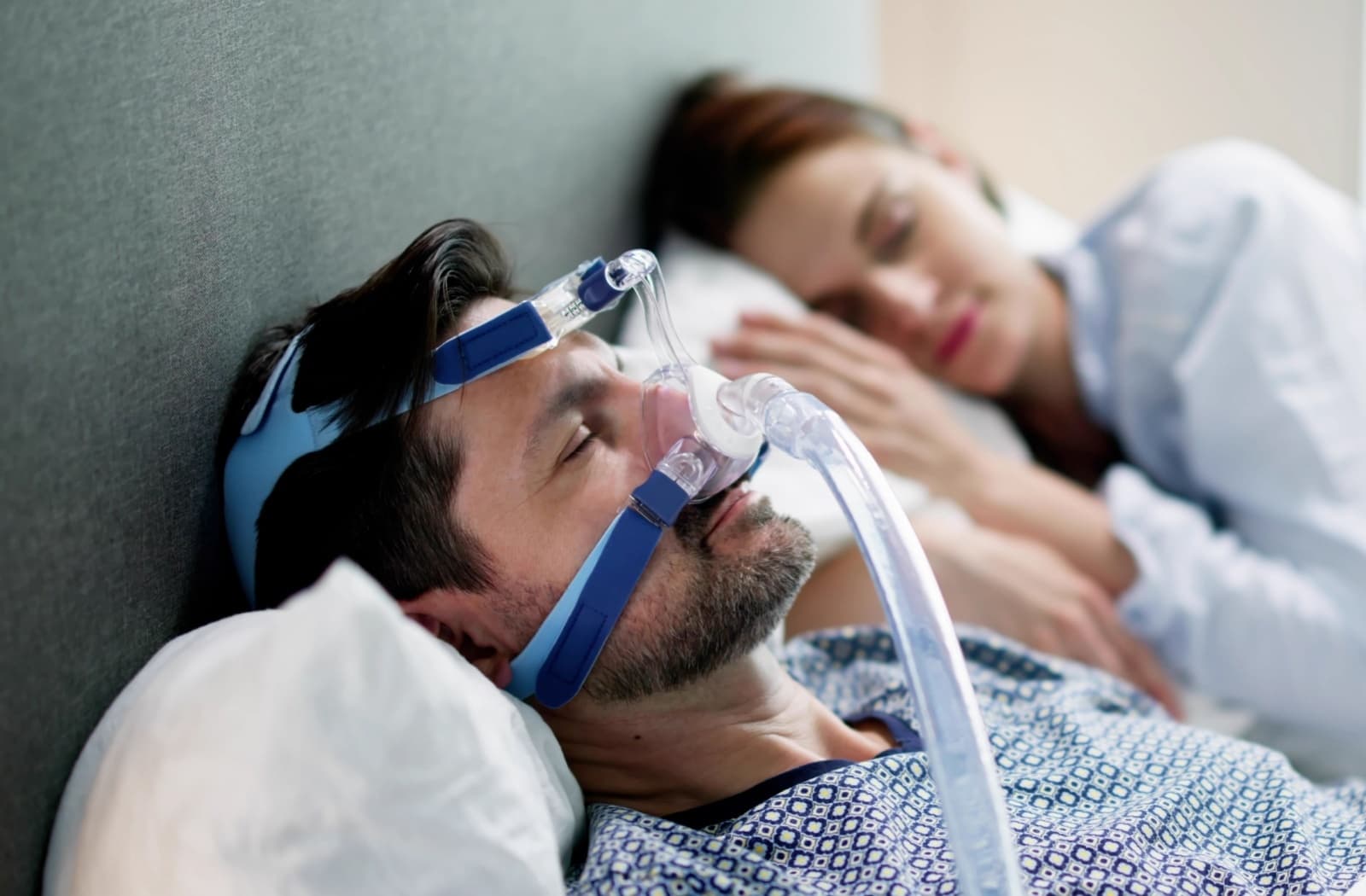
Have you encountered the growing online trend of using mouth tape for better sleep? Promoted by influencers on TikTok and Instagram, mouth tape has become a hot topic in wellness circles, claiming to improve sleep quality, reduce snoring, and even stop teeth grinding. But should you trust the hype?
Let's examine the science (or lack thereof) behind mouth tape, its possible benefits, potential risks, and how to use it safely. By the end, you'll understand whether mouth tape is an effective solution for better sleep or just another viral trend.
What Is Mouth Tape?
Mouth tape is exactly what it sounds like. It's a piece of adhesive tape designed to keep your mouth shut during sleep. The goal is to encourage nasal breathing, which some studies suggest is better for overall health than mouth breathing. Specialized brands like SomniFix and 3M have started marketing these products.
Unlike regular tape, mouth tape is hypoallergenic and designed to be safe and gentle on the skin. It typically comes in pre-cut strips, making it easy to apply before bed.
A Lack of Research
Currently, the research on mouth tape as a reliable sleep aid is limited. While some evidence supports the idea that nasal breathing has health benefits, those benefits don't necessarily confirm that mouth tape works and is safe. If you're considering mouth tape, remember that anecdotal stories should never outweigh actual medical research, and you should always talk to a medical professional before trying it.
Influencers Are Not Experts
The rise of mouth tape can largely be attributed to social media influencers who share anecdotal stories and bold claims. While these accounts may be compelling, it's important to remember that most influencers are not medical experts. Claims of mouth tape as a cure-all for sleep issues lack consistent scientific support.
What Are the Benefits of Mouth Tape?
While the jury is still out on its overall effectiveness, here are the potential benefits that advocates of mouth tape claim:
- Encourages nasal breathing: Nasal breathing is believed to filter and humidify the air you inhale, reducing throat dryness and irritation.
- Prevents mouth breathing: Mouth breathing can lead to bad breath, oral dryness, and an increased risk of cavities. Mouth tape may help avoid these issues by keeping the mouth closed.
- Positively impacts energy levels: Nasal breathing may lead to better oxygen exchange, which can boost overall energy levels and help you wake up feeling more rested.
However, these benefits largely depend on the individual, and their results may vary.
Does Mouth Tape Stop Snoring?
Snoring often occurs due to mouth breathing or relaxed throat muscles. If your snoring is caused by open-mouth breathing, mouth tape may help you transition to nasal breathing, potentially reducing snoring. But if your snoring stems from other causes, such as blocked nasal passages or sleep apnea, mouth tape will not solve the problem, and may even be detrimental.
Does Mouth Tape Help Sleep Apnea?
Sleep apnea is a serious medical condition where breathing repeatedly stops and starts during sleep. While proponents suggest that mouth tape encourages better airway management, it is not considered a treatment for sleep apnea. If you suspect you have sleep apnea, consult a healthcare professional for a comprehensive diagnosis and treatment plan. Using mouth tape without addressing the root cause of apnea could be dangerous.
Does Mouth Tape Help with Teeth Grinding?
Some people tape their mouths shut, hoping it will serve as an overnight fix for teeth grinding (also known as bruxism). However, no solid evidence links mouth tape to reduced teeth grinding. Bruxism often involves stress, dental misalignment, or sleep disorders, which require targeted intervention from a dentist or other medical professional.
Is Mouth Tape Dangerous?
Applying tape over your mouth does, understandably, raise concerns. Mouth tape may not cause issues when used correctly for most healthy individuals. However, there are risks to consider, including:
- Obstructed breathing: Taping the mouth shut could make breathing difficult if nasal passages are blocked (e.g., due to allergies or a cold).
- Skin reactions: Even with hypoallergenic tape, some people may develop irritation or an allergic reaction on the skin around their mouth.
- Claustrophobia or discomfort: Those who feel anxiety about having their mouth taped may find the experience uncomfortable or unsettling, which could negatively impact sleep quality.
If you're unsure whether mouth tape is safe, consult a healthcare provider before trying it.
How to Properly Apply Mouth Tape

For those ready to try mouth tape, proper application is key to ensuring safety and comfort. Follow these steps for the best results:
- Choose the Right Tape: Use a product specifically designed for sleep, such as Myotape. Avoid using regular adhesive tapes, as they can irritate your skin.
- Clean Your Skin: Wash and dry your face to remove any oils or products that may prevent the tape from sticking properly.
- Prepare the Tape: Peel one individual strip from the Myotape packet and stretch it laterally (by about 20-30%).
- Apply Gently: Place the tape horizontally around your lips, keeping it centred and comfortable. Press gently to ensure it sticks well.
- Check for Comfort: Start using the tape while awake to get used to the sensation. This helps ensure you feel comfortable before committing to overnight use.
- Remove Carefully: Gently peel the tape off in the morning to avoid irritating your skin.
If you experience discomfort or difficulty breathing during the night, discontinue use immediately.
Should You Try Mouth Tape?
Mouth tape could benefit people who struggle with mouth breathing or snoring, but it's not a universal solution for sleep problems. If your primary concern is a serious issue like sleep apnea or teeth grinding, consult a medical professional to explore proven treatments.
At Dentistes REMA, we help you identify and address the root causes of your sleep-related dental issues. Contact our team today to learn more about safe and effective solutions tailored to your needs.
Discover real results that go beyond the sleep trends. Book a consultation with Dentistes REMA today.